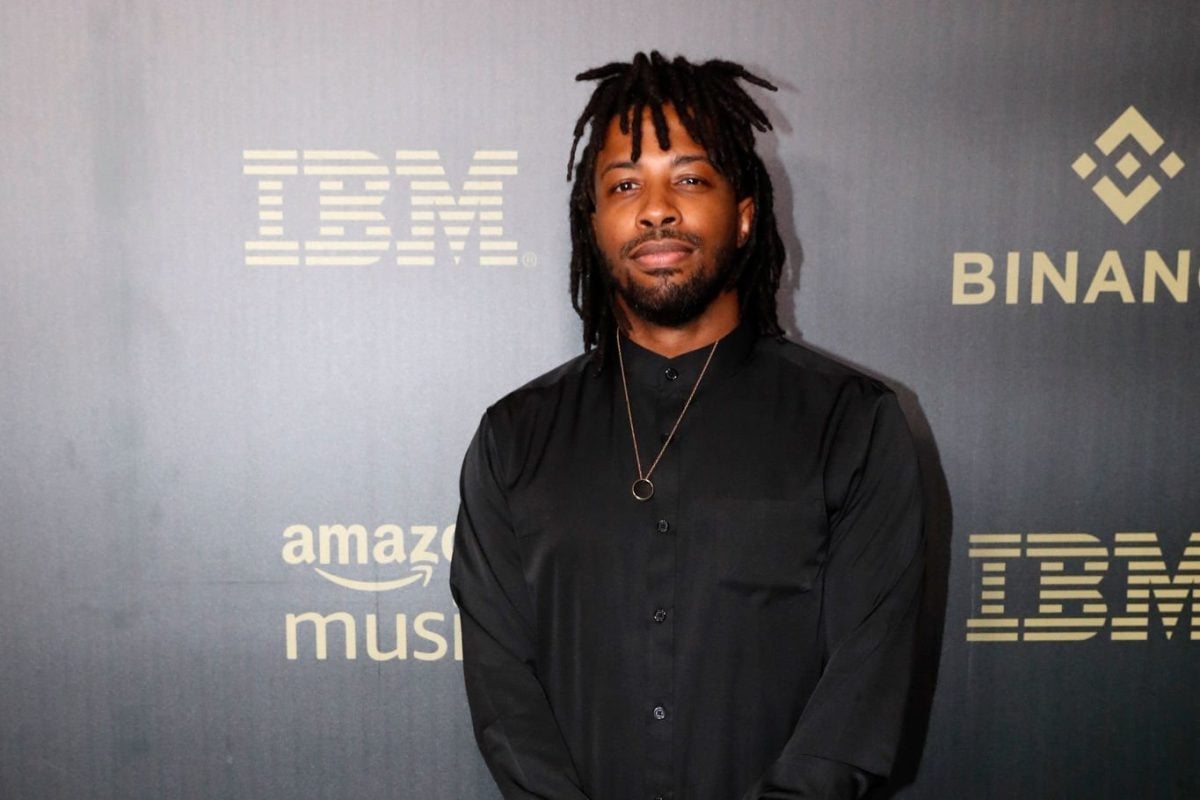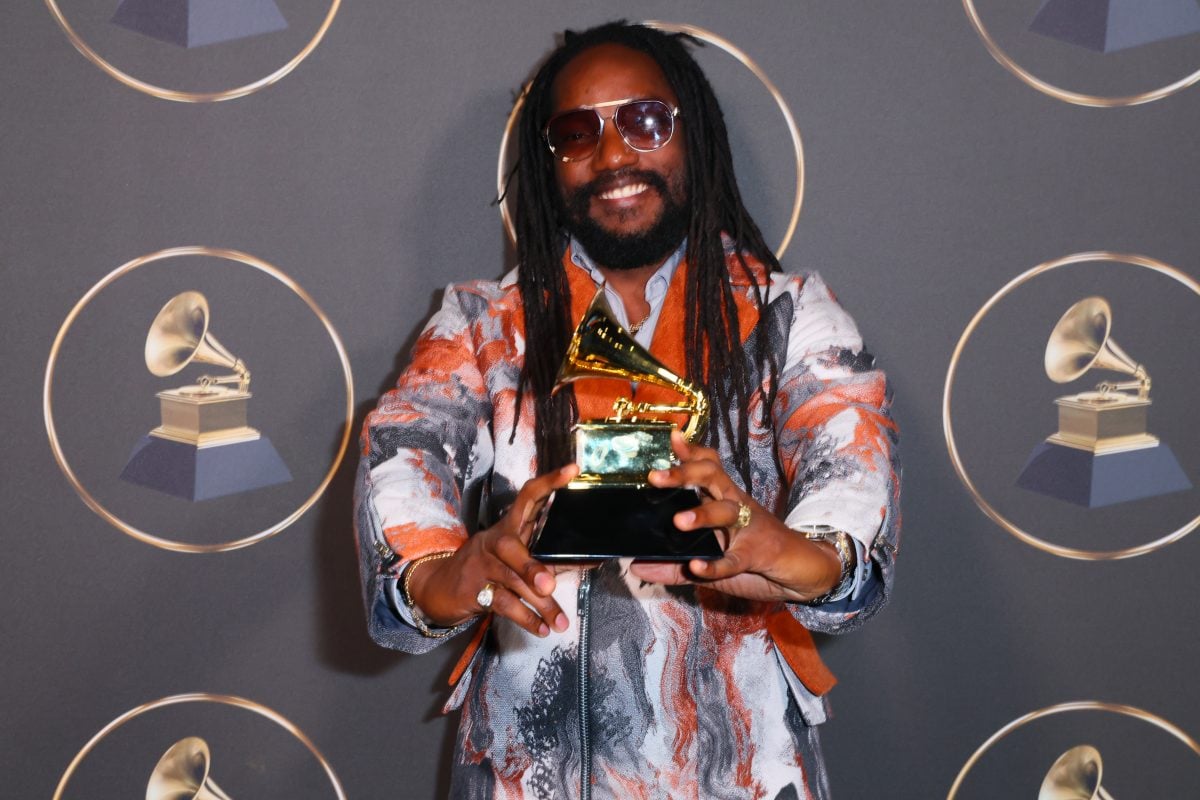Interview: Grammy Manager Len Brown Urges Jamaican Musicians To Join The Recording Academy

Len Brown, Senior Manager of Hip-Hop, R&B, and Reggae at the Recording Academy, is imploring more Jamaican musicians to register with the organisation.
His call comes in the wake of the Academy’s introduction of three new categories for the 2024 GRAMMYs, including a song category called Best African Music Performance — a move which has caused some to complain that Jamaican genres were once again “snubbed” in favor of genres like Afrobeats, Afro-fusion, and Amapiano.
Brown, who is a Jamaican, told DancehallMag in an interview that creating new categories within the Academy’s structure requires proposals from members.
He’s therefore urging eligible Jamaican music professionals to join the Academy and participate in its decision-making processes, which could lead to the creation of additional categories and other desired changes for Reggae and Dancehall.
“If you’re not a member, you can’t make that proposal so therefore, nothing changes, which is why I want to spread that word of more people being a part of it, more people joining, so that way you have more of a community around when it comes time to create another category for Reggae and Dancehall. That only comes with participation and communication,” Brown said.
He added: “I feel like it’s next up, but we just need the right people in the community to help spearhead it.”

In 2016, following the nomination of albums by Devin Di Dakta, J Boog, Ziggy Marley, Raging Fyah, Rebelution, and Soja, Reggae legend Freddie McGregor lashed out at the Academy, calling the Reggae Grammy “an embarrassment of indescribable magnitude to Reggae music” and “a toy and a plaything for the West Coast of the United States.”
Others have perceived the Academy as overly biased towards the Bob Marley family, considering that they have won 13 of the 39 Reggae Grammys awarded since 1985.
Related : Here’s The Album Sales For The 39 Past Reggae Grammy Winners
Brown acknowledged that such feelings of disenfranchisement might be among the factors discouraging Jamaicans from registering with the Academy. Still, he expressed his eagerness to better understand and address these concerns.
“I feel like some of it could be some disenfranchisement, just off the strength of them feeling like they’re not heard so I can understand that or them thinking it’s a Marley thing which I know that perception has come across quite a bit over the years because of the winners that have come out of the Reggae category,” he said.
“I wish I could read minds ‘cause I can’t, so, I don’t know ultimately what the real barrier is but I do know I want to break it down somehow and I need more people from Jamaica to help me with that.”
Membership Requirements
According to Recording Academy rules, membership is open to creative or technical music professionals, such as singers, composers, producers, art directors, and engineers.
Voting members must have been either producers, performers, or engineers on six or more tracks of a commercially released album or 12 or more digital tracks—a requirement that most of Jamaica’s music professionals of all ages easily meet.
Prospective members must submit their application before March 1 to be considered for that year’s class and they must also provide two recommendations from their peers.
A US$100 membership fee, which is to be paid yearly, is required.
Nominations and Winners
The GRAMMY 2024 eligibility period — which began on October 1, 2022 — will run until Friday, September 15, 2023.
While there are general criteria that all applicants must meet, Brown emphasized that having more voting members, who understand the intricacies of various music genres, including Reggae and Dancehall, is crucial to shaping the outcome of the nominations and winner each year.
“As long as you submit the body of work that’s released during that period that we tell you for each Grammy cycle, and as long as everything checks out from the album notes and everything else…the metadata and everything—then you’re good. As long as the music fits the category description too. If it’s Reggae music, it’s gotta sound like Reggae music,” he told DancehallMag.
Brown stressed that the Academy does not restrict nominations to artists from specific regions, potentially explaining some of the controversy with SOJA’s win in 2022.
However, he believes the final decision ultimately lies with the votes cast by the Academy’s voting members.

“Obviously, they don’t restrict it to people only from Jamaica so that could explain some of that controversy but I feel like ultimately it comes down to the votes and the people that vote are the ones that are gonna ultimately give that person the nomination or give that person the win, which is why we need more folks to understand the music so that the more people that understand the music that are a part of that voting body can chime in and let their voices be heard and that can affect the outcomes year in and year out.”
Last March, Grammy-nominated producer and music executive Cristy Barber maintained that it was highly unlikely that Dancehall would ever get its own Grammy Award category, and that the focus ought to be spent on preventing the “Best Reggae Album” field from being discontinued.
Brown was, however, optimistic that things could shift at any time.
He also said he is open-minded about what to expect from this year’s batch of submissions for consideration in the “Best Reggae Album” pool.
“I want to see some good music come out. I just wanna see more of us being involved in the voting process on both ends; the first round and final round and just being involved in every front and obviously that means being a member, that means reaching out to me. I try not to be hard to find so that we can discuss ways of amplifying what it is that we need to.”


